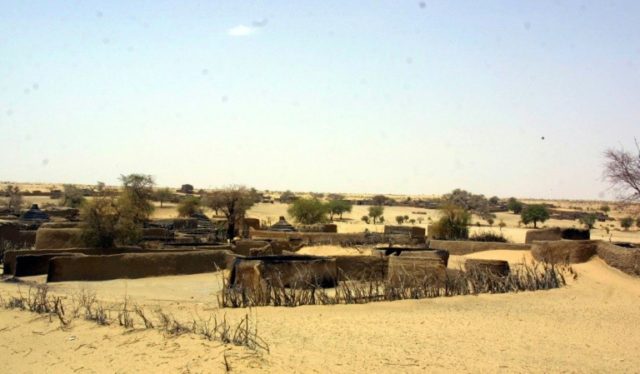The Hague (AFP) – Longtime fugitive militiaman Ali Kushayb has turned himself in to the International Criminal Court where he faces war crimes charges for his role in Sudan’s brutal Darfur conflict, the ICC said Tuesday.
Kushayb, also known as Ali Muhammad Ali Abd–Al-Rahman, is wanted on 50 counts of war crimes and crimes against humanity committed between 2003-2004 in the western Darfur region.
“Ali Kushayb is in the custody of the ICC after surrendering himself voluntarily in the Central African Republic on account of an ICC arrest warrant issued on 27 April 2007,” the Hague court said in a statement.
ICC prosecutors say Kushayb, believed to be around 63 years old, was a senior commander in the notorious Janjaweed militia during the fighting, which erupted in 2003 when ethnic African rebels took up arms against Khartoum’s then Arab-dominated government, led by the now-ousted Omar al-Bashir.
The rebels say they suffered racial discrimination, marginalisation and exclusion in one of the country’s poorest regions.
But Khartoum responded by unleashing the Janjaweed, a group of mostly Arab raiding nomads, recruited and armed to create a militia of gunmen who often mounted horses or camels.
They have been accused of applying a scorched earth policy against ethnic groups suspected of supporting the rebels, raping, killing, looting and burning villages.
Terror campaign
Their terror campaign saw the ICC issue arrest warrants against Kushayb in 2007 and Bashir in 2009 and 2010.
“Ali Kushayb is alleged to have personally participated in some of the attacks against civilians… between August 2003 and March 2004, where the killing of civilians, rape, torture and other cruel treatments occurred,” the ICC said.
A senior Sudanese official told AFP he had been transferred following surrender. “We have been officially notified of Kushayb’s arrival to the ICC headquarters in The Hague,” he said.
ICC spokesman Fadi El-Abdallah confirmed that Kushayb arrived at the ICC’s high security detention facility in a Hague suburb around 1700 GMT.
An initial appearance would take place “in due course”, the ICC said.
Landmark for justice
Bashir, who ruled Sudan with an iron fist for three decades, was deposed in April last year following months of protests in Sudan.
Kushayb fled to the Central African Republic in February when the new Sudanese government announced its intention to cooperate with the ICC’s investigation, a researcher at the Washington-based war crimes and corruption-busting organisation The Sentry said.
Kushayb and around 100 militiamen fled Sudan “hoping he could find a haven amidst the conflict and chaos of the Central African Republic,” Nathalia Dukhan said in a statement.
Wanted on charges including genocide, Bashir still remains on the run from the Hague-based court, having thumbed his nose at the institution while travelling with impunity across Africa, including to some ICC member states.
Arrest warrants had also been issued for others including Ahmad Harun, Sudan’s former interior minister who was charged with coordinating counter-insurgency forces including the Janjaweed in operations against the rebels.
Human rights groups hailed Kushayb’s surrender to the court as “extremely significant” and a “landmark for justice for Darfur’s victims.”
“For too long those responsible for the large-scale international crimes committed in the western Sudanese region of Darfur have escaped prosecution,” UN High Commissioner for Human Rights, Michelle Bachelet said.
“The world watched in horror as Sudan’s government carried out brutal attacks on Darfur civilians, killing, raping, burning and looting villages, starting in 2003,” Human Rights Watch associate director Elise Keppler added.
“But after 13 years justice has finally caught up with one major fugitive of the crimes,” she said.
Genocide
About 300,000 people have been killed and 2.5 million displaced in the conflict, the United Nations says.
Thousands of peacekeeping troops from a joint UN-African Union mission were deployed in 2007 to curb the conflict, but their numbers have been gradually reduced since mid-2018 as the conflict has subsided.
An independent tribunal, the ICC was set up in 2002 to deal with the world’s worst crimes including genocide.
burs-jhe/pvh

COMMENTS
Please let us know if you're having issues with commenting.